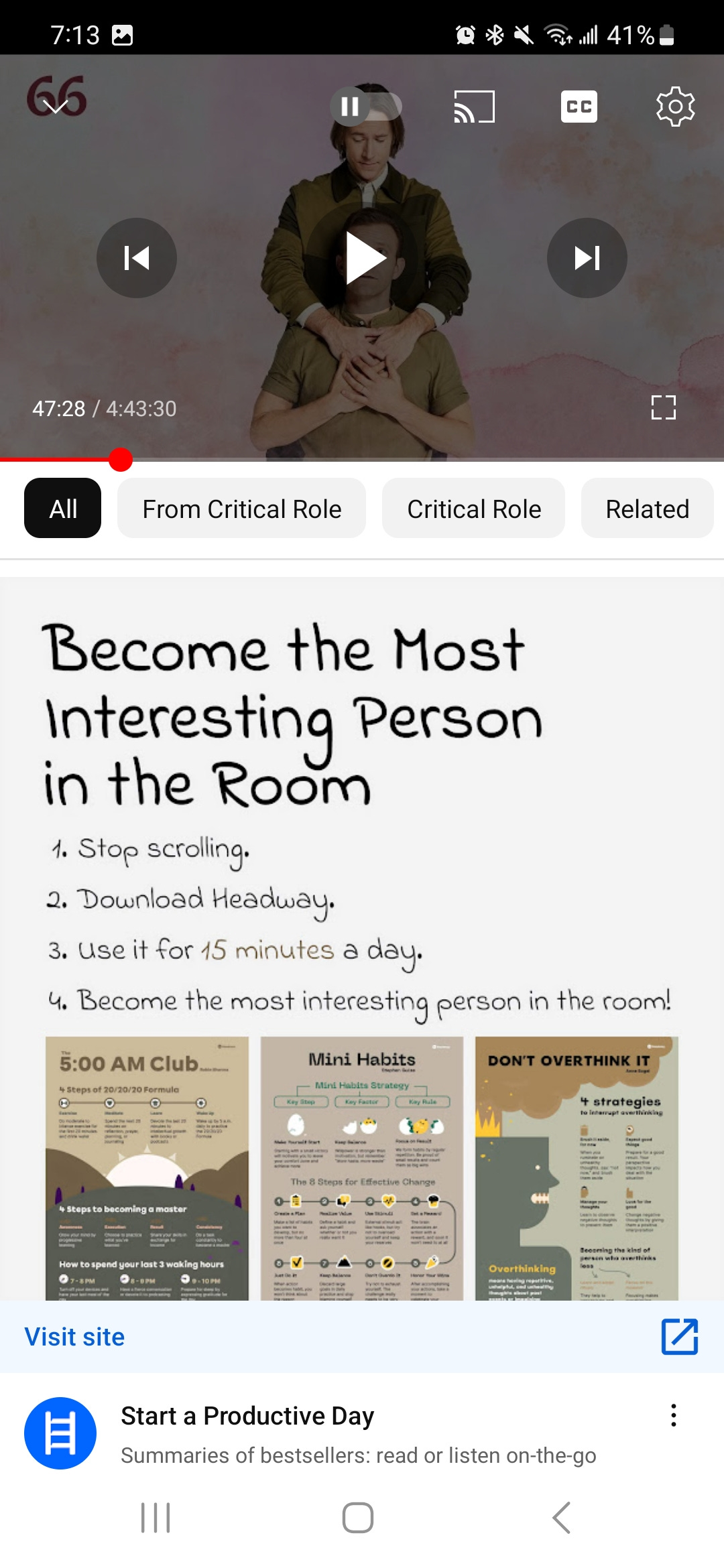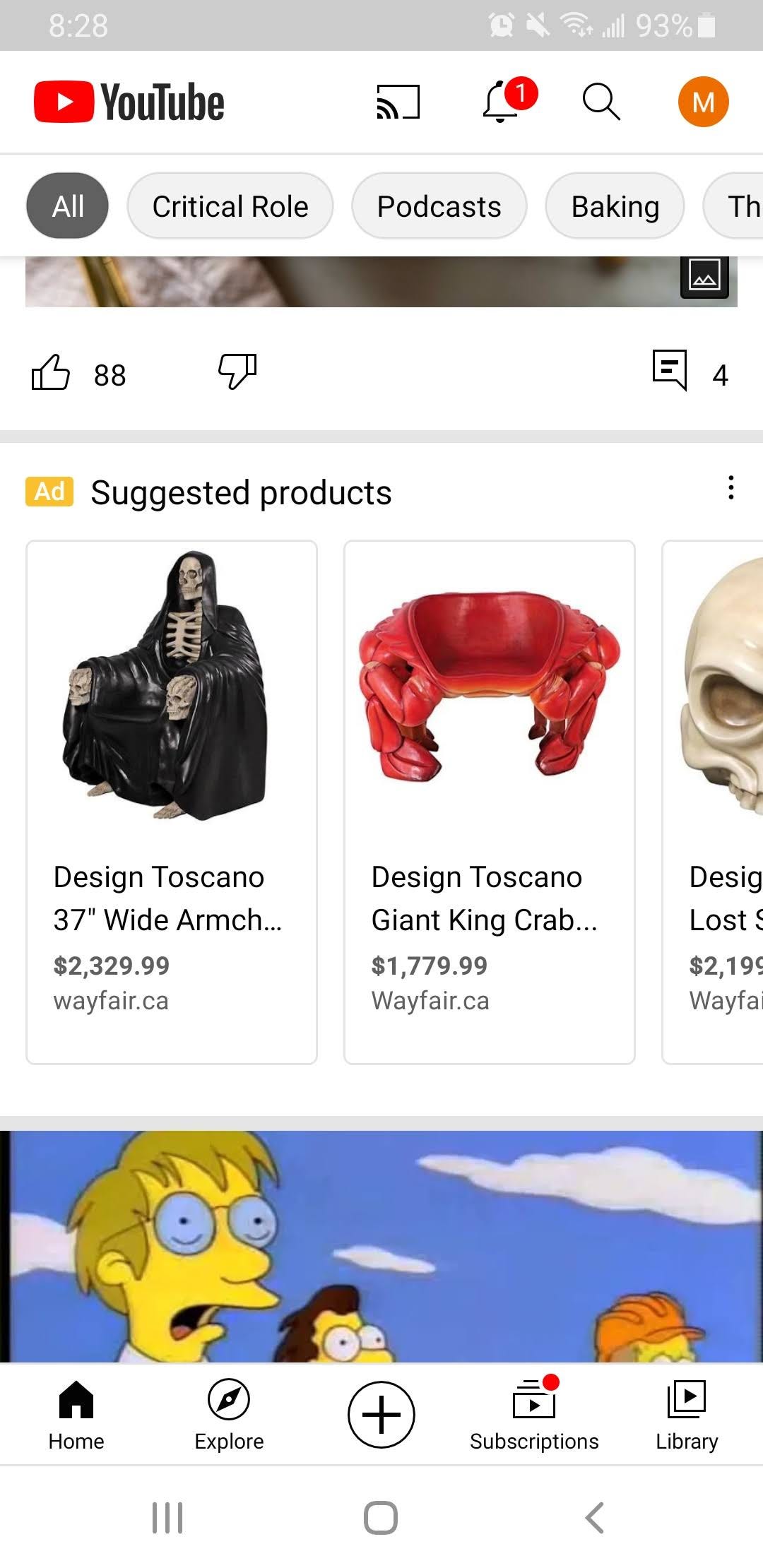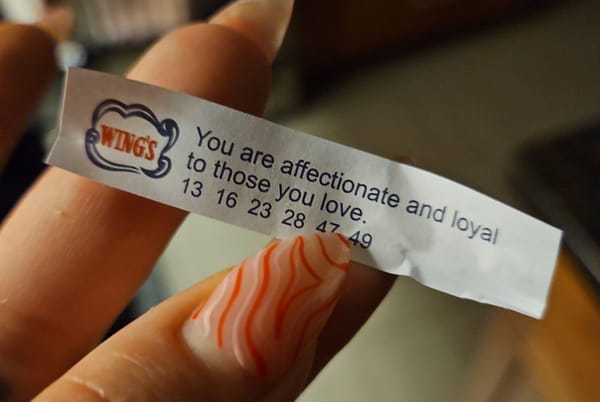There's An App For That!
Archived from Sep 14, 2023:
One of my favourite podcasts, Trashfuture, frequently opens with a segment where one host announces the name of a start-up, reads the tagline and has the other hosts guess what the start-up does. Frequently, these start-ups are apps, like Züm, school busses with extra steps, or Hip, also a bus with extra steps. One of the hosts has an uncanny ability for pitching the stupidest possible thing that occurs to her and being right. The funny thing about these start-ups, and part of the reason they’re so ridiculous is that so many tech investors have been detached from what would be considered a normal life for so long that they seem to have no idea what anyone would actually want out of a technology company. It’s like a bunch of children, insisting their game is the best because they came up with it, then forcing everyone else to play along, lest they throw a tantrum and tank the economy on purpose.
My YouTube algorithm really doesn’t know what to do with me, most of the time. There was a week, a couple years ago, where all my ads were in Thai. A friend who could read the screenshot I sent told me the ads were for potentially illegal painkillers. After that week it hard pivoted to fantasy football for about 6 months, with little to no respite from the sports bro energy interrupting my long form video essays about niche, depressing video games.
Recently, I got this ad.

Incredible. Font choice? Wild. Tagline? Unappealing. What happens when you meet someone that actually read the book, understood the nuance? Do you become the second most interesting person in the room? Or do you, perhaps, experience a modicum of embarrassment that you don’t have the emotional awareness to understand or process? Better find a book synopsis about that. Now, I will admit, I didn’t download the app because no, but I do want to attempt to be fair. There’s nothing wrong with summaries, they can help skim things so that you can get a grasp of the book and know if it’s going to be interesting to you. Personally, I prefer having reviewers that I sometimes share opinions with on previous reads to get a grasp on new books, but a general summary can work too, to get the gist. What summaries don’t do is replace actually reading and engaging with a book. They don’t demand deep concentration and critical thinking, pushing up your world view against new ideas, some of which will challenge, some of which will console.
Looking at the reviews, this app seems to be an overall ode to the cult of productivity: 4 steps to becoming a master, 5 lessons from the 5 AM club, 14 ways to turn 24 hours into 3 days. The app seems keen to give people small snippets of advice, insisting more productivity will make them valuable, worthy, interesting even. I suspect that the “non-fiction” they’re referring to is mostly how to improve your “value”, rather than any large breadth of non-fiction. Who knows, maybe I’m wrong but this ad made me roll my eyes so hard I have no intention of investigating. I’m not necessarily talking about this app specifically, so much as the cultural notion of betterment fast, for superiority, for some notion of value that is so frequently tied to a dollar amount. 15 minutes can make you better than everyone else, can make you rich, can finally make you loved.
It kind of breaks my heart, as an avid reader, that books would be chopped up and handed out piecemeal. Worse, it made me think of Jordan Peterson and Sam Bankman-Fried. Peterson, over the years, has become much more unstable and extreme than when he published 12 Rules for Life, a book full of fairly straightforward life advice mixed in with some very strange ideas about lobsters. Were you to hack this book apart, I imagine it would be pretty easy to make a quick list of uninspired advice for getting your shit together: clean your room, eat well, fight a lobster. What something like that would do, in turn, is offer validity to Peterson, because it takes innocuous things out of the context of his quite hateful world view. It does make me wonder what the vetting process is for the summaries and tidbits being offered. Bankman-Fried, alleged fraudster facing trial in October this year, came to mind because of this rather telling quote:
“I’m very skeptical of books. I don’t want to say no book is ever worth reading, but I actually do believe something pretty close to that. I think, if you wrote a book, you fucked up, and it should have been a six-paragraph blog post.”
This app seems to be the technological extension of a similar sentiment. To consume quickly, shallowly to rush towards some undefined reward. Unfortunately, it’s hard to be surprised by these sentiments, particularly when they’re held by powerful people whose every action shows how little they care for anyone but themselves. They eschew depth and rigour for whatever immediately occurs to them as a good idea, for whatever can be explained in 5 sentences or less because they have the means to almost never suffer consequences when their actions cause harm. Thomas Williams explores this hatred of books and observes, in his early 2023 article “The People Who Don’t Read Books”
The ease with which we can know things and communicate them to one another, as well as launder success in one realm into pseudo-authority in countless others, has combined with a traditional American tendency toward anti-intellectualism and celebrity worship. Toss in a decades-long decline in the humanities, and we get our superficial culture in which even the elite will openly disparage as pointless our main repositories for the very best that has been thought.
It is grim that the powerful can be so openly cruel and arrogant. It is worse that some people, exploited by these very moguls, will rush to their defence in a blind belief that it was hard work that garnered millions, and that with enough time, they could be powerful too.
Whether they know it or not, all these apps and startups sound to me like a charade, the manufacturing of busy work. The generous interpretation would be that they don’t know this, that they think their ideas are genuinely innovative and they’re making the world a better place. The more accurate interpretation, in my opinion, would be that they know they’re undermining public services, that they’re deliberately privatizing everything for their personal benefit and that they simply do not care if people have to suffer for it. I say I think this is a more accurate interpretation because sometimes, someone slips up and just admits it. They sit in large boardrooms, standing on the shoulders of those who do real labour, insisting they alone are worthy, good and deserving of comfort, as if comfort isn’t all they have likely ever know. The proliferation of useless startups and apps create companies and jobs that make nothing tangible, they maintain the illusion of productivity for people who do basically nothing but cash cheques all day. They churn forward, destroying our world on a very material level while insisting we live in a time of abundance, as long as you remember that the abundance never was, and never will be, for you.
Bonus:

This is the best ad I ever got on YouTube. For about a week it was thoroughly convinced I had north of two grand to spend on a bone throne for my apartment.
Thank you, as ever, for being here friends. Recent unemployment (hooray, mass lay offs) has me feeling a bit off kilter. The days are bleeding together, time speeds up and slows down in wholly unpredictable ways. I am floating in a liminal space, chanting the mantra “something’s gotta give.”




